

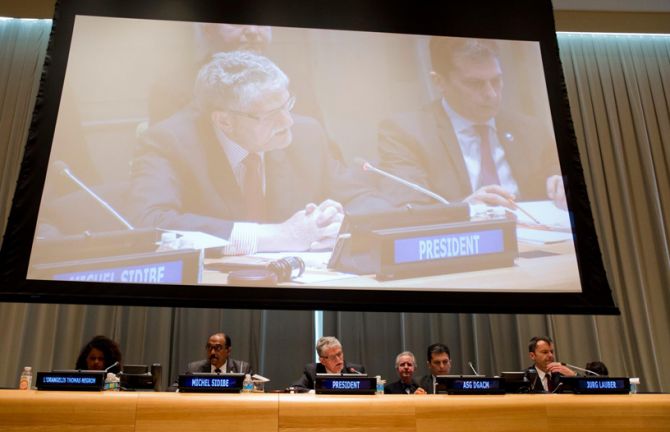
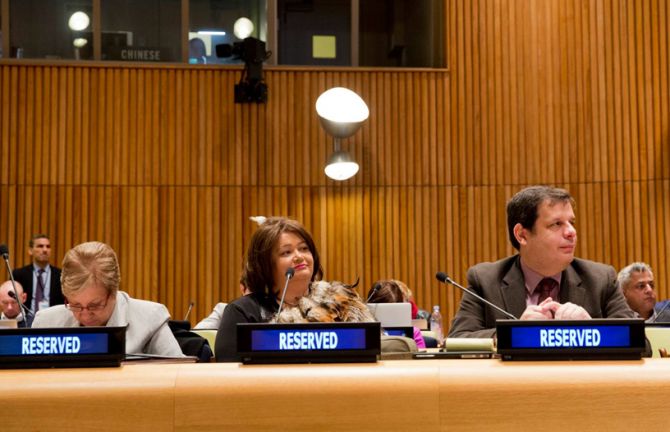

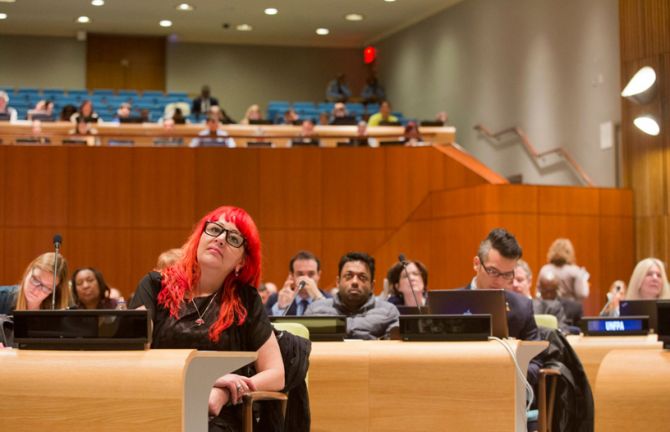
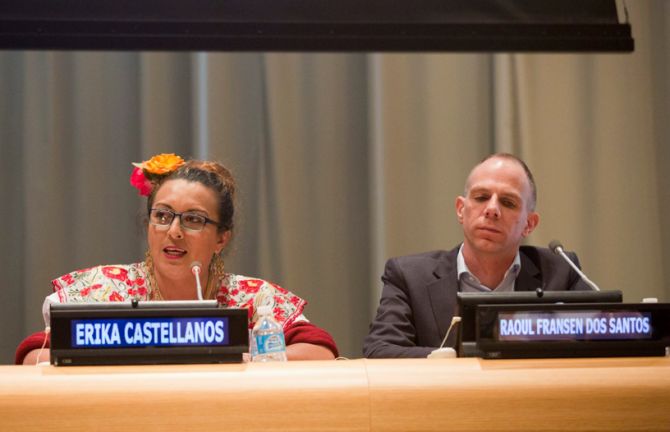
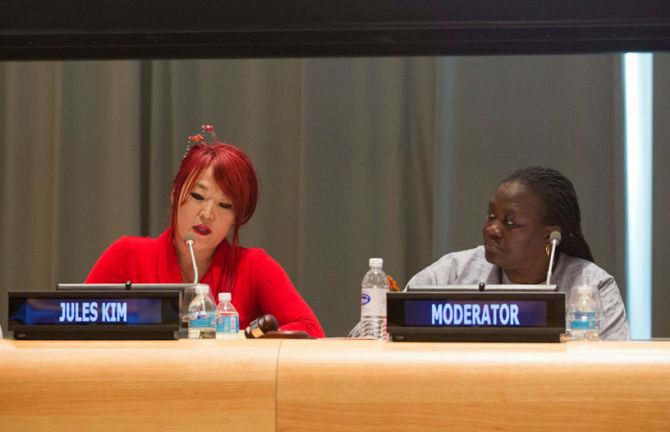
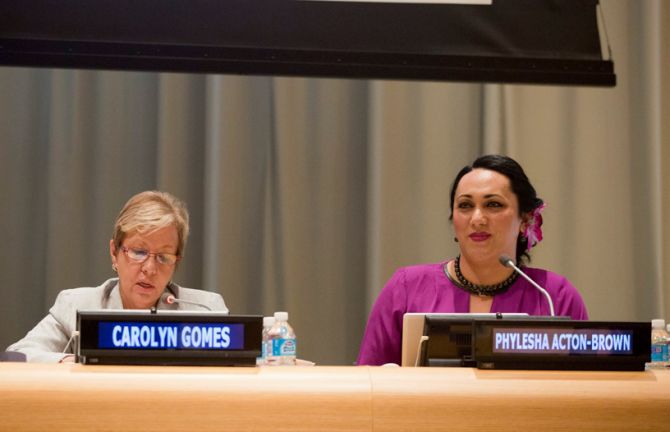

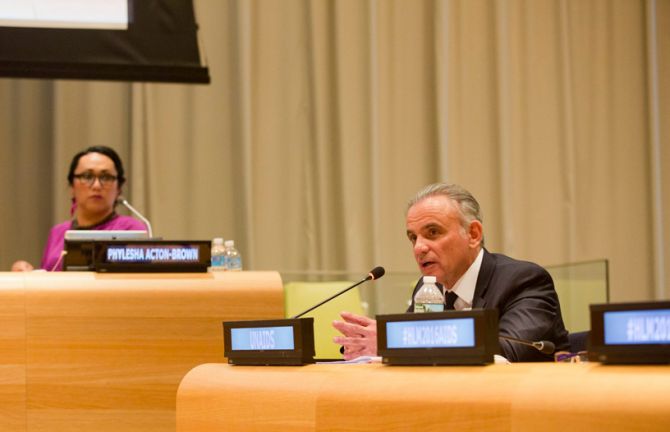

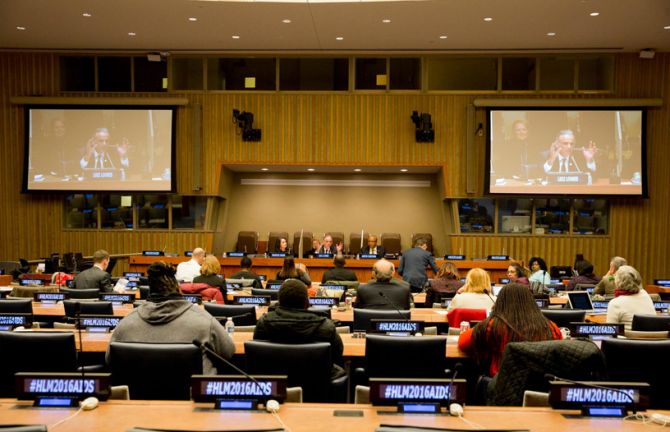
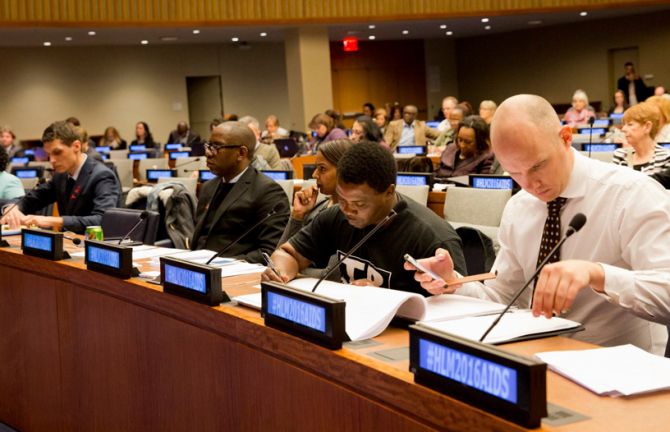
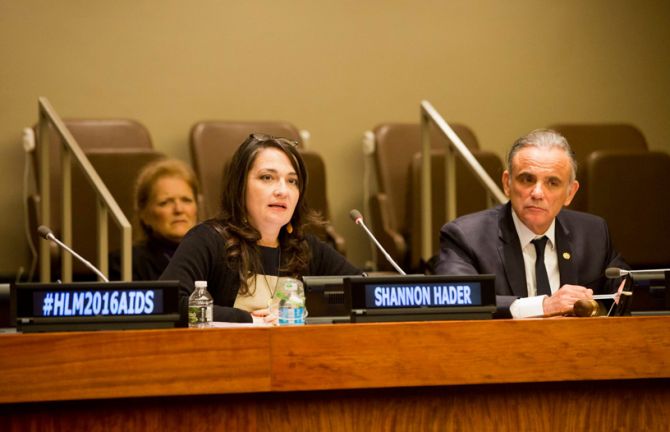

Press Release
Investing in community-led action will be critical to ending the AIDS epidemic
06 April 2016 06 April 2016Civil society urges United Nations Member States to include financing, services and rights commitments as priorities in the 2016 Political Declaration on Ending AIDS
NEW YORK, 6 April 2016—At the Informal Interactive Civil Society Hearing on HIV, civil society organizations have called on United Nations Member States and partners to ensure that the response to HIV is fully funded and that financing for community-led action is increased significantly over the next few years. They also called for 30 million people to have access to life-saving HIV treatment by 2020 and for ambitious HIV prevention targets to be met.
The hearing, convened at the United Nations Headquarters in New York, United States of America, by the President of the United Nations General Assembly, is part of the groundwork for the United Nations General Assembly High-Level Meeting on Ending AIDS, which will take place from 8 to 10 June 2016 in New York. The hearing provides an opportunity for civil society organizations to fully contribute to the preparations, to ensure that their voices are heard and that their interests are reflected, and that their recommendations are taken forward in the drafting of the new Political Declaration on Ending AIDS.
“We are aligned in our objectives of ending the AIDS epidemic by 2030,” said Mogens Lykketoft, President of the United Nations General Assembly. “Now we must work together to ensure a strong Political Declaration on Ending AIDS with clear targets that will lead the world to ending the AIDS epidemic as part of the Sustainable Development Goals.”
Representatives of civil society emphasised the need to reach the people most affected by HIV, who continue to be left behind in the AIDS response including sex workers, men who have sex with men, transgender people and people who inject drugs. The representatives also discussed the importance of ensuring a rights-based approach that is inclusive, based on evidence and people-centred during the interactive panel discussions with Member States.
“To end the AIDS epidemic, no one can be left behind,” said Michel Sidibé, Executive Director of UNAIDS. “Civil society advocacy, engagement and service delivery will play a critical role in translating the targets of the Political Declaration on Ending AIDS into real action on the ground to reach even the most marginalized people with life-saving HIV services.”
Community efforts have proven to be essential in overcoming many of the major challenges in the AIDS response, including reaching people most affected by HIV with life-changing HIV services, providing support to help people adhere to their treatment and bolstering other essential health services. Civil society engagement has also been critical in advocating for new resources, improving HIV programming and making progress on human rights issues.
“The cost of inaction is extremely high,” said Marama Pala, of the International Indigenous Working Group on HIV/AIDS and Co-Chair of the Stakeholder Task Force. “Individual communities are where the work gets done. There is no ending AIDS without us.”
UNAIDS estimates that US$ 26.2 billion will be needed for the AIDS response in low- and middle-income countries in 2020—up from the US$ 19.2 billion available in 2014. UNAIDS also underlines that greater investment in civil society advocacy and community-based service delivery will be critical.
By 2020, UNAIDS estimates that investment in community mobilization needs to increase threefold, to 3% of total HIV resources in low- and middle-income countries. Outreach to key populations in low- and middle-income countries is estimated to need to grow to about 7.2% of total HIV investments by 2020, and the estimated resource needs for community-based delivery of antiretroviral therapy need to increase to about 3.8% of total investment for HIV.
The Informal Interactive Civil Society Hearing on HIV included representatives of nongovernmental organizations, the private sector, organizations and networks representing people living with HIV, women, adolescents and young people, and other stakeholders.
UNAIDS
The Joint United Nations Programme on HIV/AIDS (UNAIDS) leads and inspires the world to achieve its shared vision of zero new HIV infections, zero discrimination and zero AIDS-related deaths. UNAIDS unites the efforts of 11 UN organizations—UNHCR, UNICEF, WFP, UNDP, UNFPA, UNODC, UN Women, ILO, UNESCO, WHO and the World Bank—and works closely with global and national partners towards ending the AIDS epidemic by 2030 as part of the Sustainable Development Goals. Learn more at unaids.org and connect with us on Facebook, Twitter, Instagram and YouTube.
Downloads
Press centre
Download the printable version (PDF)
